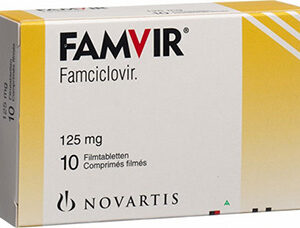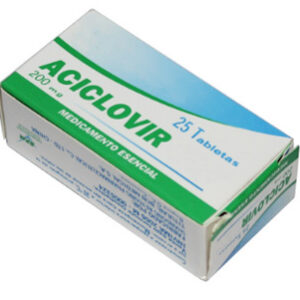Aciclovir Explained
Aciclovir, sometimes spelled as acyclovir, is an antiviral medication primarily used in the management of infections caused by varicella-zoster and herpes simplex viruses. It works by impeding the virus’s ability to replicate its genetic material, thus slowing the progression of the infection and allowing the body’s natural defenses to combat the outbreak.
Utility of Aciclovir
The use of Aciclovir is indicated for various viral infections. It is commonly prescribed for the treatment of cold sores around the mouth (caused by herpes simplex), shingles (caused by varicella-zoster), and to treat or prevent recurring episodes of genital herpes. Furthermore, it is utilized in the prevention of outbreaks in individuals with recurrent infections and as a prophylactic agent in immunocompromised individuals to fend off potential viral attacks.
Dose and Use
The appropriate dose of Aciclovir is predicated on the specific condition being treated, the patient’s body weight, kidney function, and response to therapy. It is available in several forms, including tablets, topical cream, and intravenous injection. For oral administration, recommended dosages range from 200 to 800 mg taken up to five times daily. In the treatment of shingles or genital herpes, the period of administration typically spans seven to ten days. For the effective prevention of recurrences, a lower dose may be advised for long-term use. Instructions for utilization in children vary and should follow a physician’s directives. Applying topical cream usually entails five applications per day over four days for best results. For exact dosing and administration, refer to specific medical guidance or a pharmacist’s expertise.
When to Avoid Aciclovir
Contraindications for the use of Aciclovir are significantly minimal. However, individuals with a known hypersensitivity to the medication or to any of its components should avoid using it. Special attention should be paid in patients with pre-existing kidney conditions or neurological issues, as Aciclovir may require dosage adjustments or may not be recommended at all.
Precautionary Measures
Individuals taking Aciclovir should remain well-hydrated to prevent potential kidney issues. As the drug can cause dizziness or drowsiness, caution is advised when operating machinery or driving. It is important to note that while Aciclovir can reduce the risk of spreading herpes, it does not prevent the transmission of the disease. Patients with genital herpes should practice safe sex, including the use of condoms, to prevent infection of their partners. Additionally, those with compromised immune systems should be closely monitored while on Aciclovir therapy.
Side Effects Observed
The most frequent side effects associated with Aciclovir are generally mild and include nausea, vomiting, diarrhea, and headache. Some may experience abdominal pain or a rash. More severe reactions, though considerably less common, include hallucinations, confusion, tremors, and, in extreme cases, seizure activity. Should any severe or unexpected symptoms arise, immediate medical attention is warranted.
Interaction Potential
Aciclovir may interact with other drugs, particularly those that affect kidney function. Medications like cyclosporine, tacrolimus, or nephrotoxic drugs can increase the risk of kidney damage when used concurrently with Aciclovir. It is imperative to disclose all medications, including over-the-counter drugs and herbal supplements, to the healthcare provider to avoid adverse interactions. If any new medication is prescribed or taken, verify its compatibility with Aciclovir.
Overdose Provisions
In events of overdose, Aciclovir may lead to complications including kidney dysfunction. If an overdose is suspected, one should seek immediate medical attention or contact poison control services. Emergency assistance would address symptoms promptly with supportive care, possibly including hemodialysis for severe cases to remove excess medication from the bloodstream.
Proper Storage
Storage of Aciclovir necessitates cool and dry locations away from light and humidity. Tablets should be kept at room temperature, creams should be stored away from heat sources, and the injectable solution should be refrigerated. All forms should be stored out of reach of children and pets to avert accidental ingestion.
Common Inquiries
Can I take Aciclovir during pregnancy?
It is advisable to consult a doctor before using Aciclovir if pregnant. The medication should only be used when clearly needed and after a physician’s assessment of risks and benefits.
How quickly does Aciclovir work?
Aciclovir begins combatting the virus immediately. However, it may take several days to observe the full impact on symptoms. Early initiation of treatment at the onset of symptoms is often more effective.
Is Aciclovir suitable for children?
Yes, in appropriate doses based on body weight and medical condition. Paediatric dosing information should be obtained from a healthcare provider.
Does Aciclovir cure herpes?
No, Aciclovir does not cure herpes. It helps to manage symptoms and reduce the frequency of outbreaks, but it is not a cure. Herpes is a chronic condition.
Can Aciclovir prevent transmission of viral infection?
While Aciclovir reduces the risk of spreading herpes, it is not completely preventative. Appropriate preventative measures, like safe sex practices, should be taken to avoid transmission.



Reviews
There are no reviews yet.